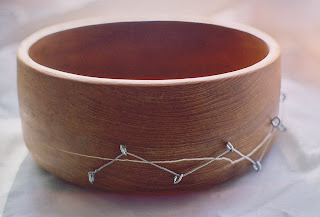For millennium, doomsday predictors have been saying the sky is falling. In fact, just browse the bible and you'll see some have even made End Times a religion.
For whatever reasons -- economic depression, famine, war, egocentricity -- every generation seems to believe that theirs will be the last.
But now global warming experts tell us mass extinction is no longer just a myth or a maybe.
Humanity is headed for catastrophe, scientists warn: Earth is getting hotter, storm systems bigger, natural disasters more devastating...
And it's only getting worse with every passing year.
A rising tide of concern
What can we do about the melting poles and rising sea levels at this late date, many ask.
Can we build elaborate barriers to hold back the oceans, place our major port cities on stilts? Should we flee to higher ground and abandon these cultural icons altogether while we still can? Or should we quietly accept our fate, go out with one big bang?
After all, it's too late to do anything else. Isn't it?
Where there's life there's hope
 As evidenced, Americonic Art thinks it's never too late to salvage things, not even a hurting planet.
As evidenced, Americonic Art thinks it's never too late to salvage things, not even a hurting planet.
Of course, this now requires a major paradigm shift on everybody's part.
Enlightenment.
Enlightenment.
And, naturally, we'll also have to accept that some prized species and ecosystems recently lost to us can never be reclaimed.
But we can put out the fires. We can control ourselves. We can atone for our sins.
5 quick tips to save our ship:
1. Turn out your lights for a couple hours each day and shut down your computer as well: You already know electric isn't generated cleanly. More often than not it's made from burning fossil fuels, a leading component of greenhouse gases and global warming.
2. Don't chuck that thing in the garbage: If the item is merely *old* give it to someone else who can use it. If it's malfunctioning then fix it. Our ancestors didn't heap up landfills with their throwaways. Whatever was broken or frayed they quilted, repurposed, and mended, mended, mended.
2. Don't chuck that thing in the garbage: If the item is merely *old* give it to someone else who can use it. If it's malfunctioning then fix it. Our ancestors didn't heap up landfills with their throwaways. Whatever was broken or frayed they quilted, repurposed, and mended, mended, mended.
3. Don't buy from corporations that insist on supersizing their packaging: As much trash is generated via big, fat, fancy wrappers as it is from faulty, useless products designed to break or become obsolete in a year so you'll have to purchase them again. Better yet, write these unfriendly companies' CEOs and complain -- filling a 16 ounce cereal box with 8 ounces of corn flakes and asserting that the carton is half empty due to 'contents settling' is deceptive and ridiculous.
4. Assess your needs realistically and show some restraint: Millions of people are signing on with expensive gyms to work off their six meals a day and the adverse effects of a sedentary life, when they could simply eat less, walk more, and save money in the process. Worse, those with less disposable incomes are going into hock to buy stuff they don't need and which has no real or intrinsic value anyway.
5. We're all in this together; let's be compassionate: Prejudices, dislikes, even preferences, are taught to us at a very early age and are usually unfounded. That means, to truly lend the world a helping hand, which is now so desperately needed, we have to make an effort to override these negative lessons. Because less strife, less war, less hunger, and less hate equals a greener planet.
PEACE BE WITH YOU AND HAVE A GREAT DAY

No comments:
Post a Comment